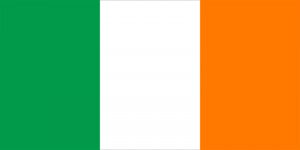Language/Irish/Grammar/Future-Tense
Hi Irish learners! 😊
In this lesson, we will be discussing the future tense in the Irish language. The future tense is used to describe an action that will take place in the future. It is an important aspect of the language, and mastering it will help you to express yourself more fluently.
Don't miss the chance to check out these pages as you wrap up this lesson: Negation & Plurals.
Formation of the Future Tense[edit | edit source]
In Irish, the future tense is formed by adding a particle to the present tense of the verb. There are two particles that are used to form the future tense: "ró-" and "faidh-".
The "ró-" particle is used for most verbs and is added after the present tense of the verb. For example, to say "I will speak", you would take the present tense of the verb "labhair" (meaning "I speak") and add the "ró" particle to it to make "labhróidh mé".
The "faidh-" particle is used for verbs that end in a broad consonant. To use this particle, remove the final consonant of the present tense and add "faidh-" to the word. For example, to say "I will see", you would take the present tense of the verb "feic" (meaning "I see") and remove the final "c", then add "faidh-" to make "feicfidh mé".
Below is a table with examples of the formation of the future tense:
| Irish | Pronunciation | English |
|---|---|---|
| labhróidh mé | lah-roh-hee may | I will speak |
| scríobhfaidh tú | shkreev-hee too | You will write |
| beidh sé ag rith | bay shay egg rih | He will run |
| ólfaidh siad | ohl-hee shee-ud | They will drink |
Future Tense Irregular Verbs[edit | edit source]
As with any language, there are some verbs in Irish that do not follow the standard rules of the future tense. These verbs are irregular and must be memorized on their own. Here are a few examples:
| Irish | Pronunciation | English |
|---|---|---|
| cloisfidh mé | klish-fee may | I will hear |
| bainfidh tú | ban-hee too | You will get |
| faighidh sé | fy-hee shay | He will receive |
| déanfaidh siad | dayn-hee shee-ud | They will do/make |
Using the Future Tense[edit | edit source]
The future tense is commonly used in conversation to discuss future plans or actions, and to make predictions. Here are a few examples:
- Person 1: An dtiocfaidh tú amach le linn na hoíche? (Will you come out tonight?)
- Person 2: Tiocfaidh mé amach le linn na hoíche. (I will come out tonight.)
- Person 1: Cad a dhéanfaidh tú amárach? (What will you do tomorrow?)
- Person 2: Déanfaidh mé siopadóireacht. (I will go shopping.)
- Person 1: An dtiocfaidh an aimsir chun cinn amárach? (Will the weather improve tomorrow?)
- Person 2: Cloisfidh mé an nuacht maidin amárach agus feicfidh mé ansin. (I will hear the news tomorrow morning and see then.)
As you can see, the future tense is used in a variety of situations, and it's important to practice using it to become more comfortable with the language.
To improve your Irish Grammar, you can also use the Polyglot Club website. Find native speakers and ask them any questions!
Sources[edit | edit source]
- Putting verbs in the future tense - Future tense - GCSE Irish ...
- Conjugating Regular Irish Verbs - PART ONE
- What is the future tense? - Future tense - GCSE Irish – Learners ...
➡ If you have any questions, please ask them in the comments section below.
➡ Feel free to edit this wiki page if you think it can be improved. 😎
Videos[edit | edit source]
How to use the FUTURE TENSE in IRISH - YouTube[edit | edit source]
Other Lessons[edit | edit source]
- Pronouns
- How to Use Be
- Give your Opinion
- Questions
- Adjectives
- Negation
- Plurals
- Irish Modal Verbs (need, want, must, can)
- Conditional Mood


